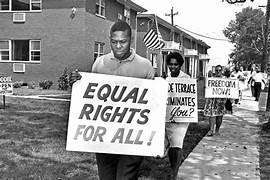In the spring of 1865, the American Civil War, which had raged for four long and bloody years, was nearing its end. The Confederate Army, led by General Robert E. Lee, found itself increasingly outnumbered, outmaneuvered, and outgunned by the Union forces under the command of General Ulysses S. Grant. On April 9, 1865, in a small Virginia town called Appomattox Court House, a momentous event took place that would signal the beginning of the end of the Civil War: General Robert E. Lee surrendered to General Ulysses S. Grant, effectively bringing the Confederate Army to its knees and paving the way for the reunification of the United States.
The surrender of Robert E. Lee at Appomattox Court House was a deeply symbolic and historic moment that marked the culmination of years of conflict, sacrifice, and suffering on both sides of the Civil War. Lee, a revered and respected military leader, had led the Confederate Army with skill and determination, winning numerous battles and earning the admiration of his troops and supporters. However, by the spring of 1865, the Confederate cause was all but lost, as Union forces closed in on the Confederate capital of Richmond and cut off crucial supply lines and communication networks.
On the morning of April 9, 1865, General Robert E. Lee arrived at the McLean House in Appomattox Court House to meet with General Ulysses S. Grant and discuss the terms of surrender. The two generals, who had known each other before the war and respected each other's military prowess, engaged in cordial and respectful negotiations that ultimately led to an agreement on the terms of surrender. Grant offered generous and magnanimous terms to Lee and his men, allowing them to retain their personal belongings, horses, and sidearms, and providing them with food and other provisions to help ease their return to civilian life.
The surrender of Robert E. Lee at Appomattox Court House was not just a military defeat for the Confederacy; it was also a moment of reconciliation, forgiveness, and healing for a nation torn apart by war. The terms of surrender negotiated by Lee and Grant set a tone of respect and dignity that would help pave the way for the reunification of the United States and the healing of the wounds of the Civil War. The surrender at Appomattox Court House was a moment of grace and humility in the midst of conflict and division, as two great generals set aside their differences and worked towards a peaceful resolution to the war.
The surrender of Robert E. Lee at Appomattox Court House had far-reaching implications for the United States and its future. The end of the Civil War and the surrender of the Confederate Army signaled the reunification of the nation and the preservation of the Union, ensuring that the United States would remain a single, united country. The surrender also marked the beginning of a long and difficult process of reconstruction and reconciliation, as the nation grappled with the legacies of slavery, secession, and war, and worked towards a more just, inclusive, and equitable society for all its citizens.






